How to Create a Routine Your Kids Will Actually Follow

How to Create a Routine Your Kids Will Actually Follow
Getting kids (from babies to teenagers) to follow a routine is one of the hardest (yet most beneficial) things a parent can do. By leveraging different types of time, you can make your life much easier.
Written by Liz Bayardelle, PhD | See Comments | Updated 01/30/2019
Want to cut to the chase?
Kids' Chore Chart
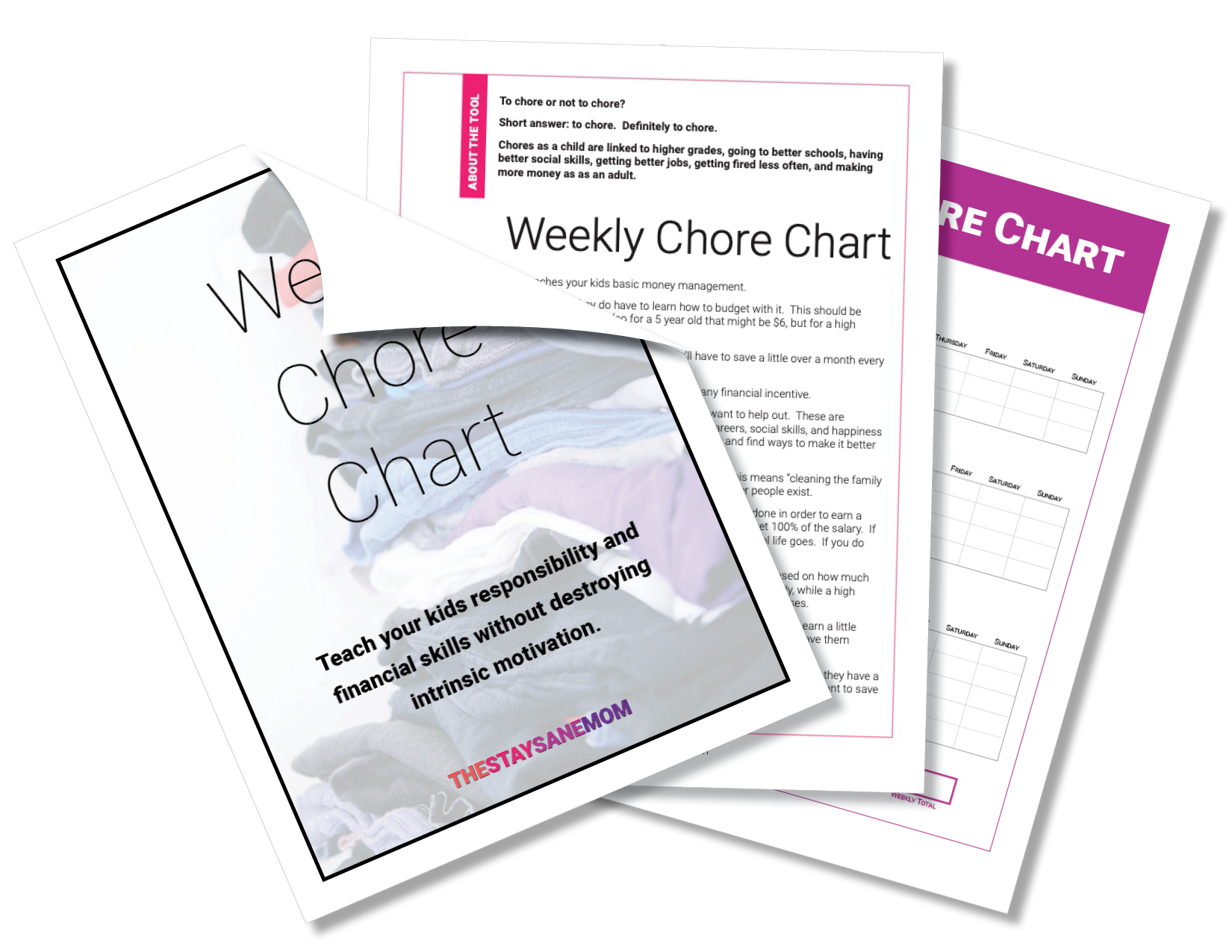
How to Create a Routine Your Kids Will Actually Follow
Why does it matter how you look at time?
As a parent, it actually matters quite a bit. Until you understand how to leverage clock time versus event-based time, you could be stuck in a contstant vortex of yelling at your child to get their darn shoes on or you're going to be late.
We have all experienced the differences between event-based time and clock time, but if you’re anything like me you never really cognized it until someone actually put it into words. However, since I started leveraging the difference between these two types of time, the likelihood of things actually getting done (and having my kids on a decent schedule) has gone way up.
What is Clock Time?
We’re all familiar with the concept of clock time. This is the type of time that’s drilled into us from a very young age. Sentences like “Get your shoes! School starts at 8:15am!” or “Dinner is at 7pm sharp!” are common things to hear (sometimes hear quite loudly) in any household. The idea of clock time means, in a nutshell, that certain things happen at an exact time of day, regardless of what other chaos is swirling around you at that moment.
Clock time is great for events that involve coordinating multiple people’s schedules at once. As the late Mitch Hedberg once said “I’ll meet you when that guy is eating a cheeseburger” never really caught on as a societal norm, so we stick with “I’ll meet you at 3pm”.
What is Event-Based Time?
Event-based time is actually far more intuitive than clock time. In my opinion, this is more natural way of scheduling things (especially if you have kid). Now, before you take a bat to your alarm clock, this doesn’t necessarily make it better. Let me explain.
Event-based time is a concept of time in which you schedule things right before or right after another event. I’ll walk the dogs first thing after I wake up. This could happen at 6am or 10am, but whatever time you wake up, your first move had better be to get those fuzzy nutjobs around the block a few times.
So, when I say event-based time ‘more natural’, I’m talking about the primitive evolution-y definition of the word natural. Look at little kids. No matter how many stars we moms wish upon, kids don’t come preprogrammed with an internal concept of clock time. An infant is hungry right after it wakes up, whether it’s 3am or a more merciful 8:30am. In my head, this kind of makes sense because, in the grand scheme of the universe, clocks (and therefore clock time) are a relatively recent development.
Why Does This Matter?
Why should it matter that event-based time is a more ‘natural’ way of doing things? It doesn’t matter in terms of your interactions with the world outside of your house. School is going to start at 8:15 whether your kid has eaten their cereal or not.
It matters because fighting against the grain drains your limited supply of oh-so-important mental energy. If you can make your schedule (or your kids’ schedules) just that much more intuitive, just that much easier to follow, it will help reduce the fighting, nagging, and eye rolling and let you save that ounce of parental patience for the next time you have to count to ten in your head because they just came running in the freshly-mopped house with muddy soccer cleats.
How to Use Time Types to Your Advantage
So here’s where this gets really useful. When you’re creating a schedule for yourself, analyze the different tasks you’re trying to get done to see if they’re more likely to get done if you schedule them on clock time or event time.
This might involve some field testing. For a week, try vacuuming the house every morning at 10am. See how often you actually do it. The next week, try vacuuming right after you get back from the morning carpool routine. Did it get done more or less often than the previous week?
Warning: This will be different for different tasks. Vacuuming, dishes, or paying bills might get done best right after you get home, finish eating, or get the mail (respectively), but your workout, sending out email, or brushing the family llama might happen better when scheduled on clock time. It also varies by person, so what you find best might be completely different from what works in my personal vortex of chaos, er, house.
By testing out different concepts of time, you can find a daily or weekly routine that seems the most natural to you. You’ll be shocked by how much easier things go when you choose the right conceptualization of time for the right task.
How to Use Time Types to Your Advantage (Kids Edition)
For the small humans, I’ve found it best to include both event-based scheduling and clock time-based scheduling. Here’s when I personally find each one to be a better choice:
When Clock Time Works Better
Anything where you have to interact with the outside world. Even if it’s not intuitive, kids really do need to learn that the world doesn’t revolve around them. If they’re late to something, it won’t wait for them. If they’re a class, they might miss something important. If they’re late to an interview, they won’t get the job. It’s up to us to make sure they get the consequences of violating clock time before the ramifications get too big.
(Plus, don’t get me started on the rant all my friends have heard a million times about how being late is a passive-aggressive way of asserting your dominance and importance over the other person. Don’t let your kids be the “perpetually late” person.)
Stuff like school, baseball practice, dance class, and other extracurriculars should be enough to teach this skill, but if you notice your mini-me isn’t getting the point, start instituting more clock-based events in your schedule to help them practice
Anything important enough to your family routine that you are willing to fight to be consistent with it. This category includes stuff like bedtimes or nap times (especially for the littles), wake up times (a bigger struggle for teens), or family dinner times. The reason I include that you have to be willing to fight for these is that it really does take effort and consistency to instill these.
If kids sense weakness or flexibility, the will capitalize on it in whatever way they can.
Dinner’s at 7:15 you say? Are you sure? What happens if I still have a friend over? Nap time’s at 3pm? It would be a shame if I happened to be three lollipops deep in a sugar rush and running laps around the ceiling, now wouldn’t it?
Kids will be kids. Be consistent and this will stick. Let it slide too many times and the only thing they’ll learn is that you don’t really mean it when you set a rule.
Event Time Works Better
Anything non-mandatory, especially for little kids. You might want to schedule naps, meals, and other “big” stuff to start teaching them that they have to work with the rest of the world’s schedule, but I usually find that any of the “little” stuff goes more seamlessly on event time.
This is stuff like putting on shoes right before they go out the door (or, bonus points, taking them off as soon as they come in), brushing their teeth as soon as they put their pajamas on, saying ‘I love you’ right after they get in bed, or putting their dishes away as soon as they get up from the table.
Anything you want to build into their permanent routine. I find it very unlikely that I’ll be a good enough mad scientist...I mean parent...to condition my kids to do a half hour of reading every day at 4:45pm and have that behavior persist into adulthood. It’s possible, but the odds are definitely not in my favor.
However, if your kid really gets used to coming in the door, grabbing a snack, and flopping down on the sofa to read for a while as they decompress from their day, I would actually wager that the habit might stick once they’re on their own in the “real world”.
Start Your Next Step
Kids' Chore Chart

Get Sanity, Delivered to Your Inbox.
Care to Share?
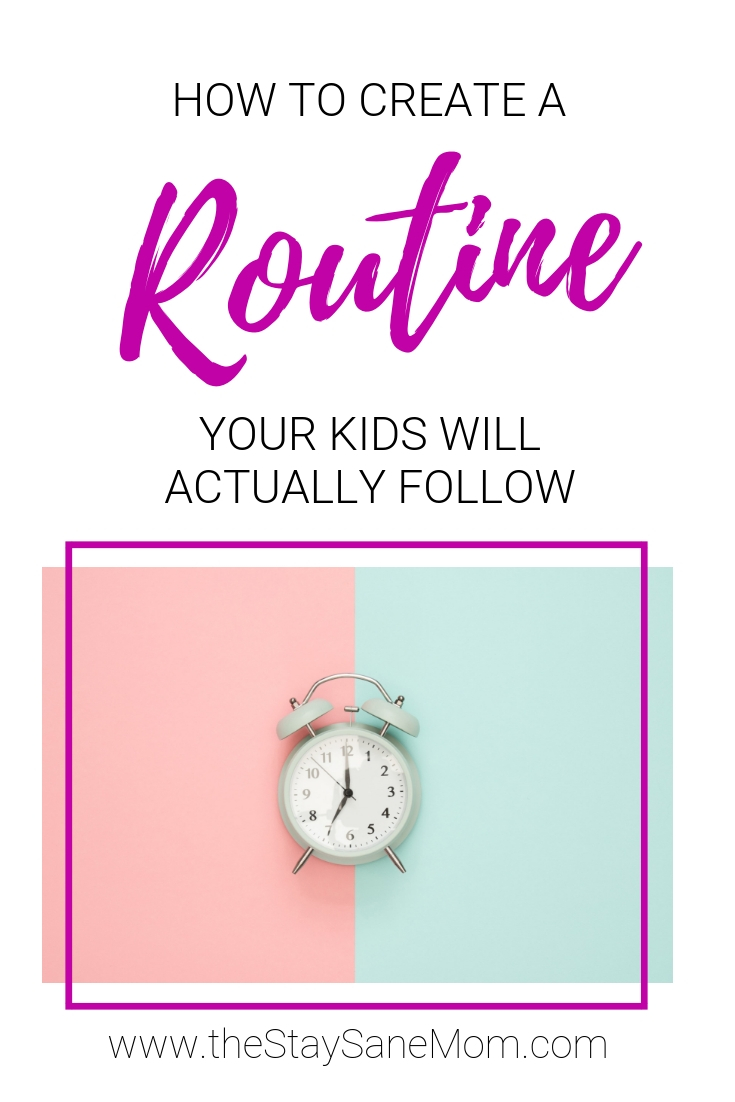
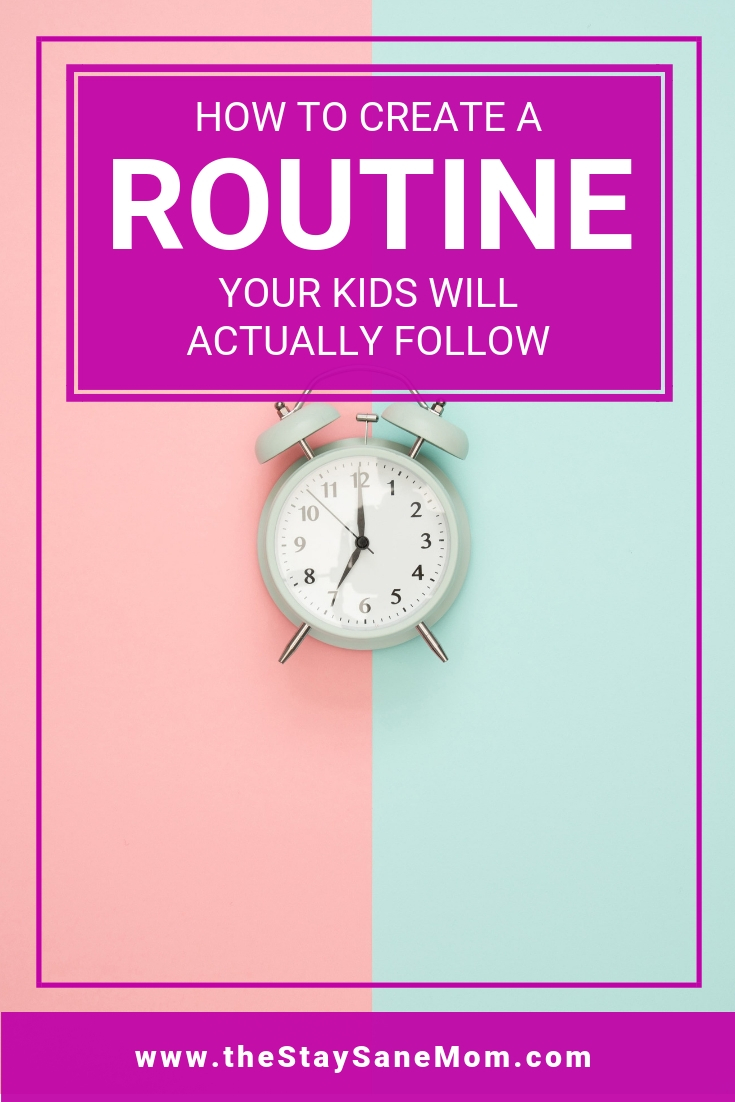
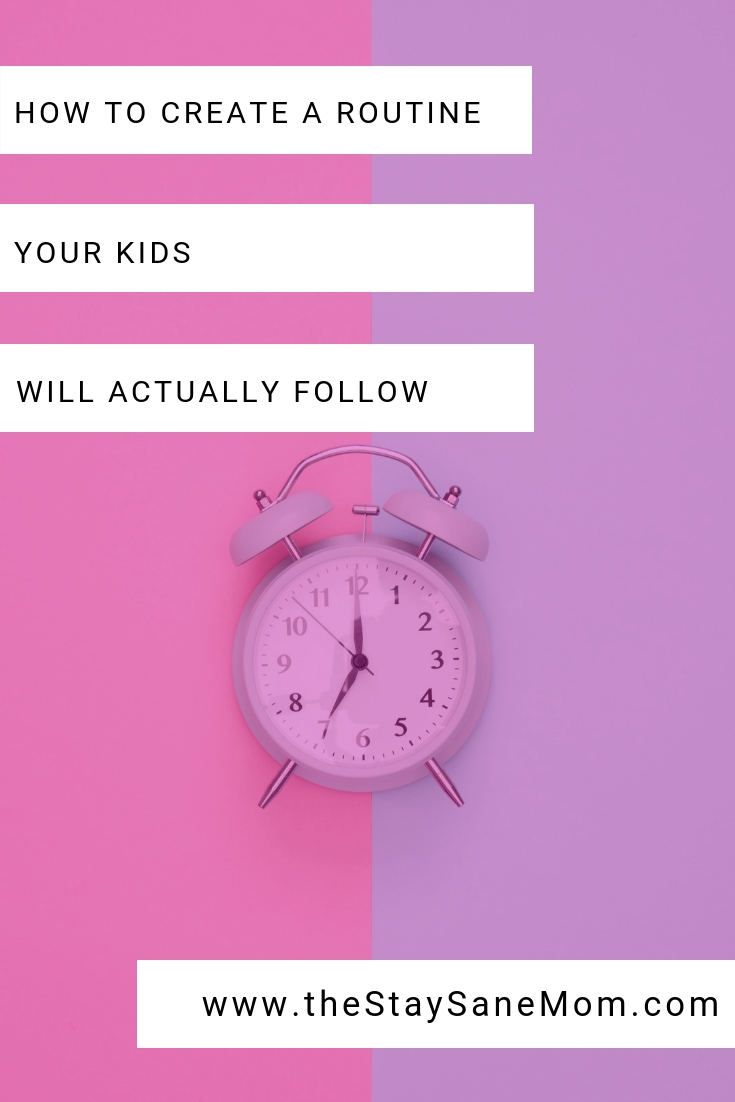
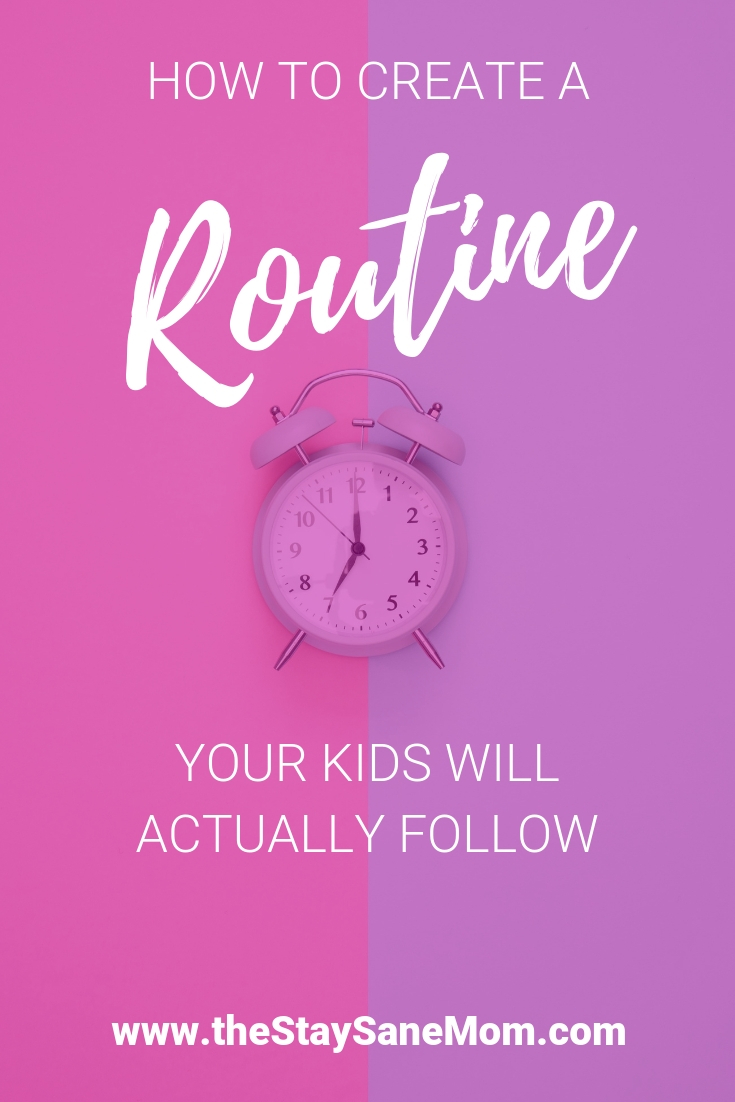
About the Author

Liz Bayardelle, PhD
Founder | Contributor
Liz (or Dr. Mommy, as her toddler started calling her after learning what a PhD was) is the happily sleep-deprived mom of a toddler (and professional raccoon noise impersonator), a sparkle-clad kidnado, a teenage stepdaughter, 200 cumulative pounds of dog, and herd of dustbunnies (if daily vacuuming doesn't occur). During nights and naptimes, she uses her PhD in business psychology as an author, speaker, and consultant. She also serves as an executive and principal for three companies, two of which she co-founded with her very patient (and equally exhausted) husband.





-Budget.jpg)